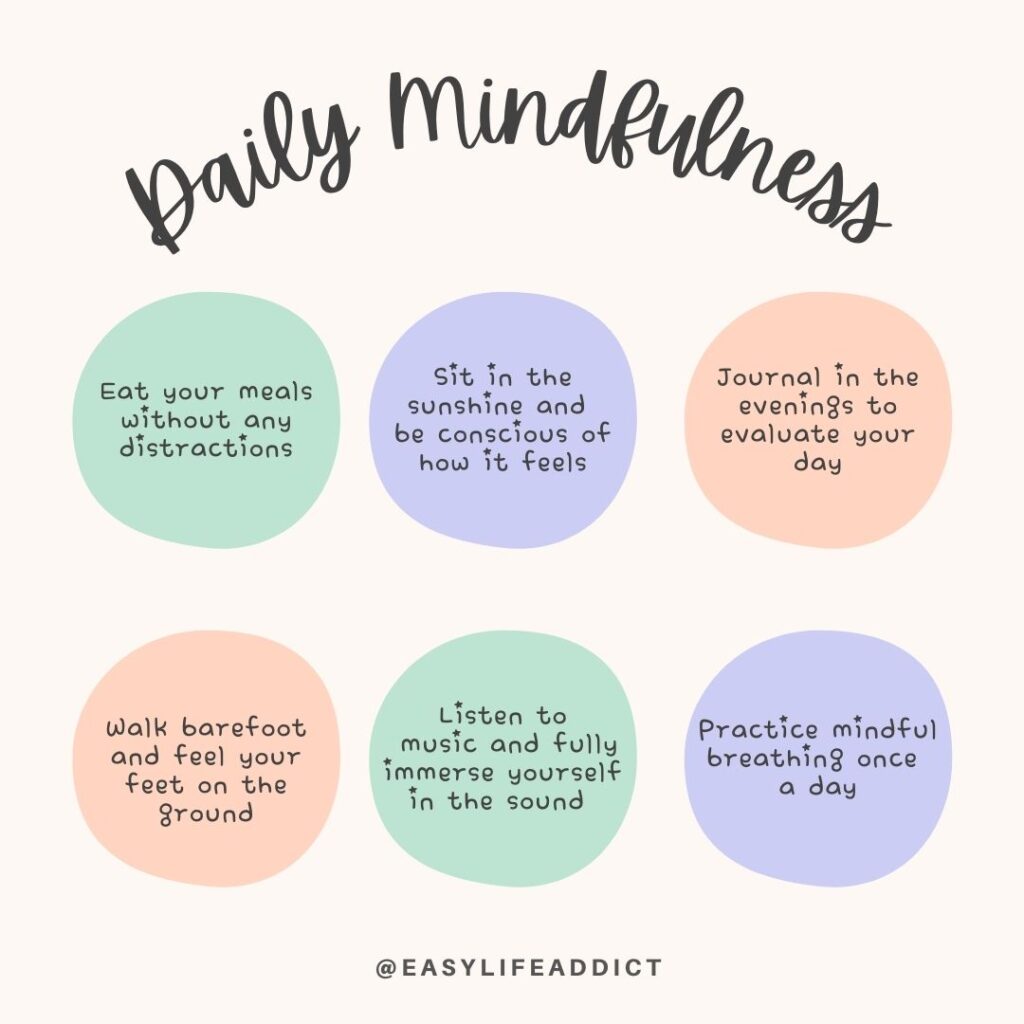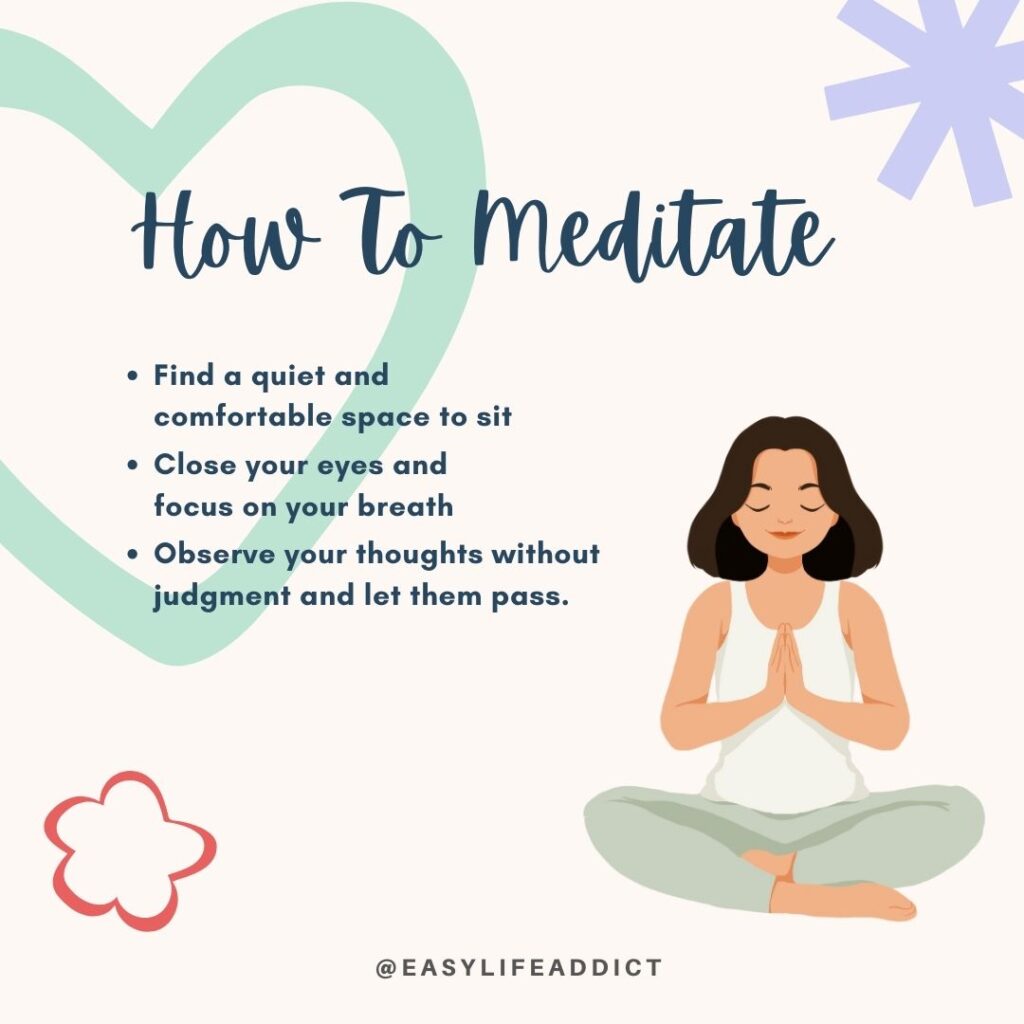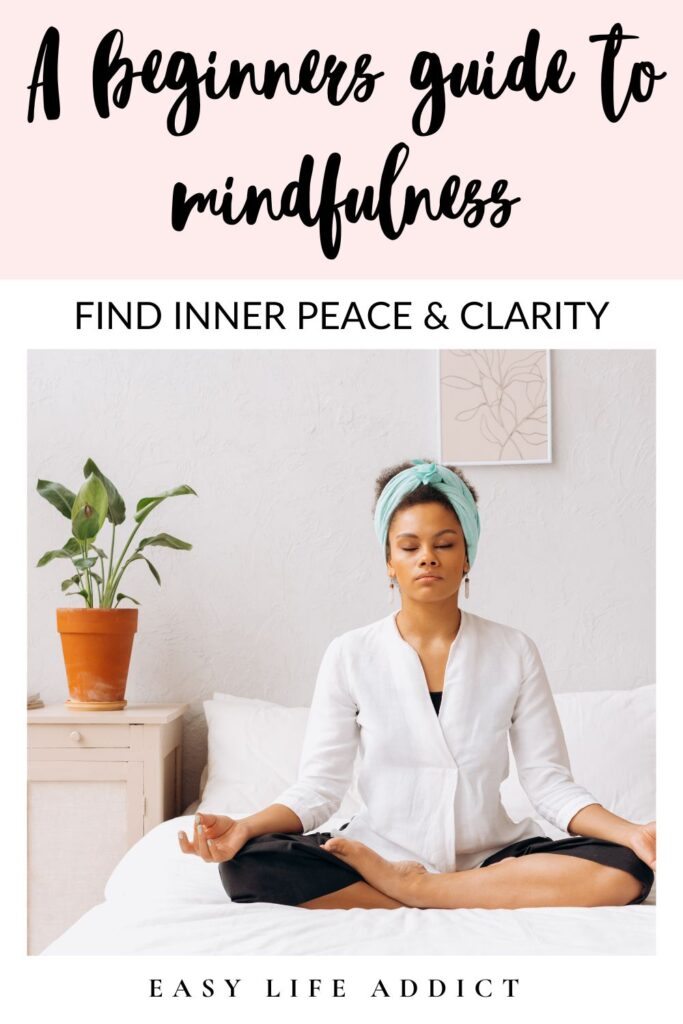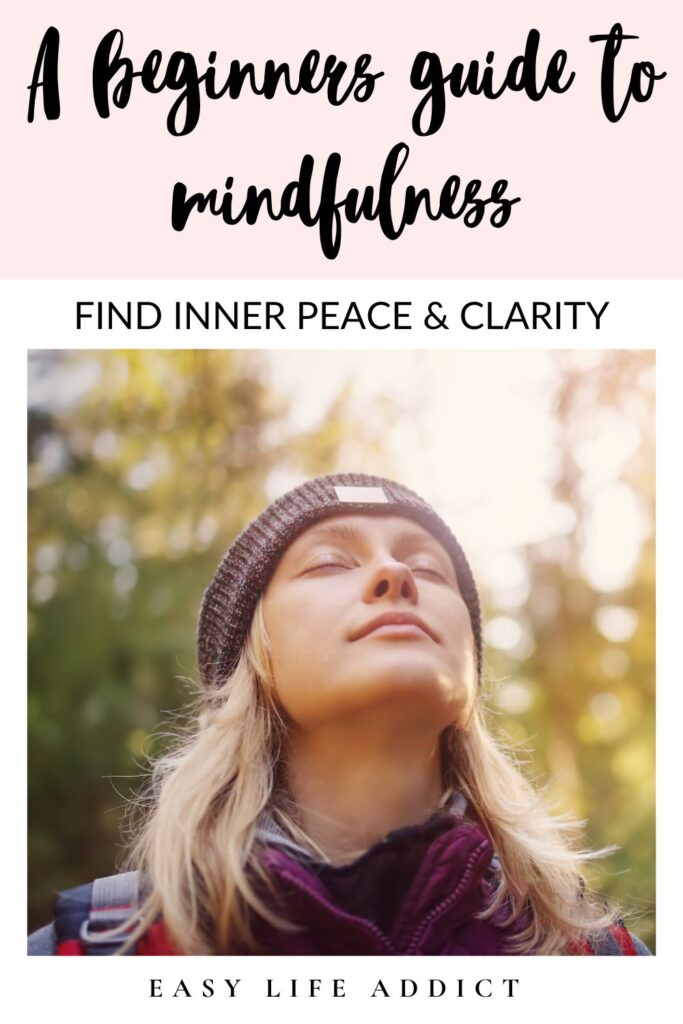Beginner’s Guide to Practising Mindfulness!
In today’s hectic world, finding peace and balance can feel like an impossible task. But what if we told you there’s a simple yet profound way to connect with the present moment? Say hello to practising mindfulness!
Practised for centuries across cultures, mindfulness has become an essential tool for navigating the stresses of daily life. By honing in on the here and now, mindfulness gives us a deeper understanding of our thoughts, feelings, and sensations, free from judgment or distraction.
Imagine a life filled with calm, clarity, and acceptance. With mindfulness, it’s not just a dream. It’s a reality waiting to be embraced. This guide aims to introduce you to the art of mindfulness and provide practical strategies for incorporating it into your daily routine.
This post may contain affiliate links. That means that if you click on a link and purchase something I recommend, I will receive a small commission at no extra cost to you. As an Amazon Associate, I earn from qualifying purchases. This helps keep my website up and running and is very appreciated. Thank you for your support! You can read my full disclosure policy here.
What is Mindfulness?
Mindfulness is the practice of purposely focusing your attention on the present moment and accepting it without judgment. When you’re mindful, you observe your thoughts and feelings from a distance without judging them as good or bad. Instead of letting your life pass you by, mindfulness means living in the moment and awakening to your current experience rather than dwelling on the past or anticipating the future.
Mindfulness can be cultivated through proven techniques such as meditation, yoga, or simple breathing exercises. The goal is not to empty the mind or achieve a state of eternal calm but rather to pay attention in a particular way, on purpose, in the present moment, non-judgmentally.

The Science Behind Mindfulness
The practice of mindfulness has been backed by a growing body of scientific research over the past few decades. Studies in psychology, neuroscience, and medicine affirm the profound effects of mindfulness on our brains and overall well-being.
Neuroplasticity, the ability of our brain to change and adapt, plays a crucial role in how mindfulness works. Regular mindfulness practice can rewire our brains, strengthening areas associated with attention, emotional regulation, and empathy while reducing activity in the amygdala, the part of the brain responsible for our stress response.
Research also shows that mindfulness can lead to decreases in cortisol, the body’s primary stress hormone, and can boost the immune system’s response to pathogens. With these significant benefits, it’s clear to see why mindfulness has emerged as a key component in psychological therapies and stress reduction programs.
Benefits of Practising Mindfulness
Mindfulness has myriad benefits that enhance physical and mental well-being. It is known to reduce stress and anxiety, helping individuals cope with the pressures and challenges of daily life. By focusing on the present, it aids in alleviating feelings of worry and overthinking that often lead to mental health issues like depression. Mindfulness also boosts emotional health, fostering a positive attitude towards life and enhancing self-esteem.
From a physical perspective, mindfulness has been linked with improved sleep quality, as it helps to alleviate stress and promote relaxation. It is also associated with lower blood pressure and improved heart health. Furthermore, mindfulness practices such as meditation can contribute to pain management, offering a natural and holistic alternative or complement to traditional medical treatments.
In terms of cognitive benefits, mindfulness enhances focus and attention span, thereby improving performance in professional and academic settings. It enhances decision-making and fosters creativity, allowing for a clear, focused mind. Moreover, it bolsters memory and prevents cognitive decline, proving particularly beneficial as we age.
Overall, mindfulness is a powerful tool that can transform our lives, leading to increased happiness, health, and overall well-being.
How to Practice Mindful Meditation:
One effective technique for practising mindfulness is meditation. You can start with guided meditations or mindfulness exercises to help you focus your mind.
For those of you new to meditation, here are some steps to get started:
Find a quiet area where you won’t be disturbed and sit comfortably. Breathe deeply and focus your attention on your breath. As you inhale, silently say to yourself, “breathing in,” and as you exhale, say, “breathing out.” When your mind wanders, gently bring it back to your breath. Start with just a few minutes daily and work up to longer sessions.
Remember, mindfulness is a skill that takes time and practice to develop. Don’t get discouraged if your mind wanders or you find it difficult initially. Keep coming back to the present moment; eventually, mindfulness will become a natural part of your daily life.

How to Practice Mindfulness Every Day:
Incorporating mindfulness into your everyday life can be achieved with the following strategies:
Mindful Morning Ritual: Start your day with a mindfulness practice such as meditation or conscious breathing. This can help set a positive tone for the rest of the day.
Mindful Eating: Pay attention to your eating, savour each bite, and appreciate the flavours, textures, and aromas. This can enhance your enjoyment of food and decrease overeating.
Mindful Observation: Take a few moments each day to observe your surroundings. Pay attention to sights, sounds, smells, and how you feel at that moment.
Mindful Breaks: Take short breaks during your day to practice mindfulness. It could be as simple as focusing on your breath for a minute or two.
Mindful Movement: Incorporate mindfulness into your physical activities. Pay attention to the feeling of your body moving during activities like walking, exercising, or doing household chores.
Mindful Listening: Practice active listening when you’re conversing with someone. Focus on their words and try to be fully present in the conversation.
Mindful Sleep: Before drifting off to sleep, focus on your breath and try to release the day’s stress and worries. This can improve your sleep quality.
Remember: Be patient with yourself. Mindfulness is a journey, not a destination. Keep incorporating these strategies into your daily routine; with time, mindfulness will become second nature.
Tips for Practising Mindfulness:
- Let go of judgment: Instead of judging yourself or your thoughts during mindfulness practice, try to simply observe without any judgments.
- Be open to change: As you continue your mindfulness journey, be open to change and growth. Your perspectives and thoughts may shift positively.
- Practice self-compassion: Be kind to yourself during your mindfulness practice and the rest of your day. Treat yourself with the same compassion and understanding you would extend to a friend.
- Find what works for you: Mindfulness can be practised in many different ways, so experiment and find what works best for you. Some prefer guided meditations, while others prefer mindful movement or journaling.
- Set reminders: It can be easy to forget to practice mindfulness amidst the busyness of daily life. Set reminders on your phone or place visual cues around your home or workspace to remind yourself to take a few moments for mindfulness.
- Seek support: Don’t be afraid to seek support from others practising mindfulness. Joining a group or attending workshops can provide accountability and encouragement on your journey.
Remember, practising mindfulness requires little time or complication. It’s about being present and aware in the moment, which can bring peace and clarity to your mind. Keep exploring and incorporating mindfulness into different aspects of your life, and you’ll soon see its positive effects on your overall well-being.
Additional resources
Headspace app: This popular app offers guided meditations and exercises to help you incorporate mindfulness into your daily routine.
Insight Timer: This app offers a variety of guided meditations, talks, and music for your mindfulness practice.
Mindful.org: This website offers various resources, including articles, courses, and podcasts, to support your mindfulness journey.
Final Thoughts
Mindfulness is a powerful tool that can help us decrease stress, anxiety and depression and improve overall well-being. It involves being fully present, aware, and engaged in whatever activity you’re doing.
Meditation is an effective technique for cultivating mindfulness. However, mindfulness doesn’t end with meditation sessions. You can bring that same awareness to everyday activities by paying attention to the present moment without judgment.
Remember, mindfulness is a practice, and it takes time to cultivate. So start small, be patient with yourself, and enjoy the present moment.
Remember to check out our related resources for more tips and guidance on this important topic. Take control of your mental health and embrace a brighter future!
Thanks so much for stopping by; I appreciate everyone who takes the time to read and make it to the end! I have lots of exciting new content in the next few weeks, so make sure you pop back to catch up!









